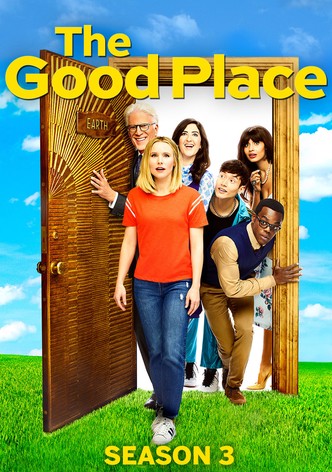Please join us this Wednesday, January 12th, for the first Strange Thing meeting of the winter term. We’ll meet from 4:30 to 5:30pm to discuss episode 1 of The Good Place, Season 3. The Good Place series is available to watch on Netflix. (The Zoom link for the meeting is on the email, which any of the Philosophy faculty would be happy to forward.)

S3 E1, “Everything is Bonzer!,” is a double-length episode: 43 minutes. What stands out to you in this episode? What do you wonder about while you’re watching it? Are there parts that resonate with you or bother you? Our open discussion can go in a lot of directions. Here are a couple thoughts to get us started:
In this episode, Chidi, Eleanor, Tahani, and Jason find each other on Earth because they’ve all had near death experiences that motivate them to become better people. So, they form a philosophical study group arranged around the question of what we owe to each other. Does the episode thereby assume that becoming a better person is equivalent to becoming a more moral person? Even if a near death experience motivates people to make sustained positive change, does living a better life amount to improved ethical decision-making? (Backing up a bit, we could ask if attributing to Chidi, Eleanor, Tahani, and Jason a desire to become more moral is a fair assessment of what’s motivating each to join the group.)
We can also use this episode as a chance to think about the nature of indecision, the condition that Chidi struggles with. At times in the episode, like Henry’s decisive getting-in-shape moment, indecision seems to be characterized as a lack of follow through or will power. At other times, like when Chidi can’t pick a chair or ask out Simone, it looks like a fear of commitment and potential consequences. But a particularly insidious form of indecision is not knowing what you want—not know what you want to strive for or seek or commit yourself to. Is that a type of indecision that the show depicts? Are there other ways it manifests in the show?
Please spread the word to and invite fans of either The Good Place or philosophy!

